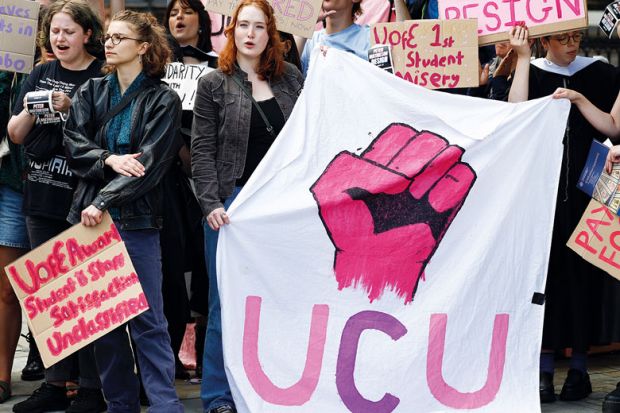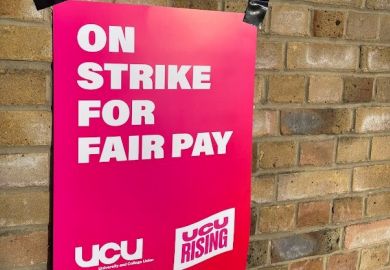The UK’s largest academic union is attempting to rally its members to support another round of industrial action, but divisions and disillusionment are threatening to undermine the efforts.
Only a third of University and College Union (UCU) branches were going ahead with what was intended to be five days of national strikes between 25 and 29 September.
Those not taking part cited the need to regroup after a year that has seen several similar walkouts and a five-month marking boycott bruise relations with employers, without securing much material gain for members.
Others blamed the union’s leadership for a lack of strategy, saying taking the hit on pay was “pointless”, with some branches now calling for general secretary Jo Grady to resign.
Local deals have seen academics win back wages that were deducted from them for boycotting marking – and some improvements in pay and conditions – with the strikes that are taking place fuelled by the anger of those still thousands of pounds worse off.
Meanwhile, the UCU has launched its delayed third strike ballot, which could allow more industrial action to take place from November, but – after comfortably passing the 50 per cent threshold on the last two occasions – some think it may prove more of a struggle this time.
“Overall, colleagues are tired and unconvinced by the struggle,” said Roger Seifert, emeritus professor of industrial relations at the University of Wolverhampton.
“The majority of those who vote will, I believe, vote to carry on regardless, but there is a chance the threshold will be missed in many places.
“Once the action becomes hit and miss, there is a danger of the union turning inwards on itself, and that means a period of civil war.”
Michael Abberton, chair of the University of Cambridge branch, said 76 per cent of his members voted against going ahead with the strikes.
This exemption would allow resources to be concentrated on the national reballot campaign as well as focusing on local issues, he added.
At King’s College London, union members agreed a local deal but stressed that the strikes had been called off because of the gap in mandates that had made continuous action impossible. A motion passed by the branch noted the “resulting pointlessness of taking action…and the consequent loss of pay”.
Other branches have gone further. Durham UCU members passed a motion by a 91 per cent majority calling for the resignation of Dr Grady. An open letter instigated by UCU’s postgraduate researcher group that also called for her to go had been signed by dozens of academics at the time of writing.
The University of Leeds and Birkbeck, University of London did proceed with the strikes. Others, including the universities of Sheffield and Manchester, as well as several institutions in Scotland, were already staging walkouts over the pay deductions.
James Sumner, a history lecturer at Manchester who has been tracking deductions across universities, said some academics had been docked 30 per cent of annual salary while others had lost nothing.
Some institutions, such as the University of Sussex, have agreed to pay back deductions once marking has been completed, and Dr Sumner called on other universities to “come up with sensible or even tolerable offers” to allow branches to call off the strikes.
Register to continue
Why register?
- Registration is free and only takes a moment
- Once registered, you can read 3 articles a month
- Sign up for our newsletter
Subscribe
Or subscribe for unlimited access to:
- Unlimited access to news, views, insights & reviews
- Digital editions
- Digital access to THE’s university and college rankings analysis
Already registered or a current subscriber? Login








